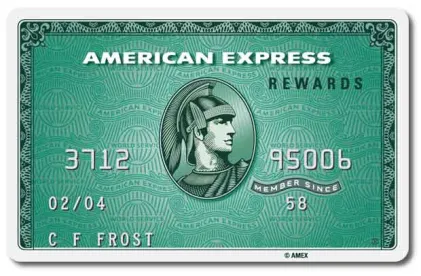What an exciting day here at the Troutman Firm soon to be Troutman Amin, LLP. I hope you all had a chance to read the announcement the Czar shared earlier today. Huge congratulations to Queenie for all her accomplishments and success! And this announcement comes on International Women’s day no less, cheers to all the women out there, we celebrate you today and everyday.
In today’s sampling of TCPAWorld, American Express was recently granted a motion to compel arbitration based on the clause from the cardmember agreement governing the credit card at issue in Audish v. American Express Company out of the New York district court. And it seems to be an arbitration agreement the cardholder never even reviewed or committed to or did she? So just how did we get here?
Plaintiff Audish was seeking a class action to stop American Express from the practice of placing pre-recorded debt collection calls. Like so many, Plaintiff was issued the luxury of a company card. While it was a corporate card, it was issued to and in the name of the actual cardholder, Audish. However, after departing the company and returning her corporate card in 2016, she started to receive prerecorded collection calls from American Express beginning in 2019 and continued into 2021 even after Audish informed American Express that she no longer held the card or was employed by the company.
American Express moved to compel arbitration arguing that Audish’s claim must be arbitrated pursuant to the arbitration provision in its cardmember agreement. Plaintiff argued the cardmember agreement that contained the arbitration terms were never agreed to by her personally and that the terms were only entered into by her former company.
American Express however had a whole different opinion on who agreed to the terms of use for the card in question. American Express argued that Audish’s use of the card which included the following disclaimer on the back of the card, “USE OF THIS CARD IS SUBJECT TO THE CARDMEMBER AGREEMENT”, was an acceptance of the terms of the card and therefore an agreement to the arbitration provision.
What exactly did those arbitration terms look like:
“Initiation of Arbitration
Any claim shall be resolved, upon the election by you or us, by arbitration pursuant to this Arbitration provision and the code of procedures of the arbitration organization to which the claim is referred in effect at the time the claim is filed (code), except to the extent the code conflicts with this Agreement.
Significance of Arbitration
IF ARBITRATION IS CHOSEN BY ANY PARTY WITH RESPECT TO A CLAIM, NEITHER YOU NOR WE WILL HAVE THE RIGHT TO LITIGATE THAT CLAIM IN COURT OR HAVE A JURY TRIAL ON THAT CLAIM. FURTHER, YOU AND WE WILL NOT HAVE THE RIGHT TO PARTICIPATE IN A REPRESENTATIVE CAPACITY OR AS A MEMBER OF ANY CLASS OF CLAIMANTS PERTAINING TO ANY CLAIM SUBJECT TO ARBITRATION. EXCEPT AS SET FORTH BELOW, THE ARBITRATOR’S DECISION WILL BE FINAL AND BINDING. NOTE THAT OTHER RIGHTS THAT YOU OR WE WOULD HAVE IF YOU WENT TO COURT ALSO MAY NOT BE AVAILABLE IN ARBITRATION.
Restrictions on Arbitration
IF EITHER PARTY ELECTS TO RESOLVE A CLAIM BY ARBITRATION, THAT CLAIM SHALL BE ARBITRATEDON AN INDIVIDUAL BASIS. THERE SHALL BE NO RIGHT OR AUTHORITY FOR ANY CLAIMS TO BEARBITRATED ON A CLASS ACTION BASIS OR ON BASES INVOLVING CLAIMS BROUGHT IN A PURPORTED REPRESENTATIVE CAPACITY ON BEHALF OF THE GENERAL PUBLIC, OTHER CARDMEMBERS OR OTHER PERSONS SIMILARLY SITUATED.”
In deciding whether the action should be arbitrated, the court first looked at whether the parties agreed to arbitrate and second the scope of the agreement.
First, the court found that there was an existence of a valid arbitration agreement between Plaintiff and American Express because the use of the credit card established assent to the cardmember agreement, whether or not Plaintiff signed the agreement. Additionally, Plaintiff conceded that she used the credit card at issue and did dispute that the credit card at issue stated “USE OF THIS CARD IS SUBJECT TO THE CARDMEMBER AGREEMENT.” Therefore the Court found that Plaintiff’s arguments that she did not sign or read the agreement were unavailing.
Next, the court found Plaintiff’s claims were within the scope of the arbitration agreement. Because Plaintiff did not argue her claim fell outside the arbitration provision and because the cardmember agreement clearly stated “claim” as any “claim, dispute or controversy between you and us arising from or relating to your Account, this Agreement, the Electronic Funds Transfer Services Agreement, … or the relationships resulting from any of [these] agreements,” including “claims based upon contract, tort, fraud and other intentional torts, statutes, regulations, common law and equity” as well as “claims by or against any third party using or providing any product, service or benefit in connection with any account…” Plaintiff’s TCPA claim fell within the arbitration provision.
This ruling is an important reminder for companies seeking to enforce arbitration agreements and class action waivers – having an extensive arbitration provision in your agreements may help you avoid being caught in the class action litigation crosshair in the future!




 />i
/>i

